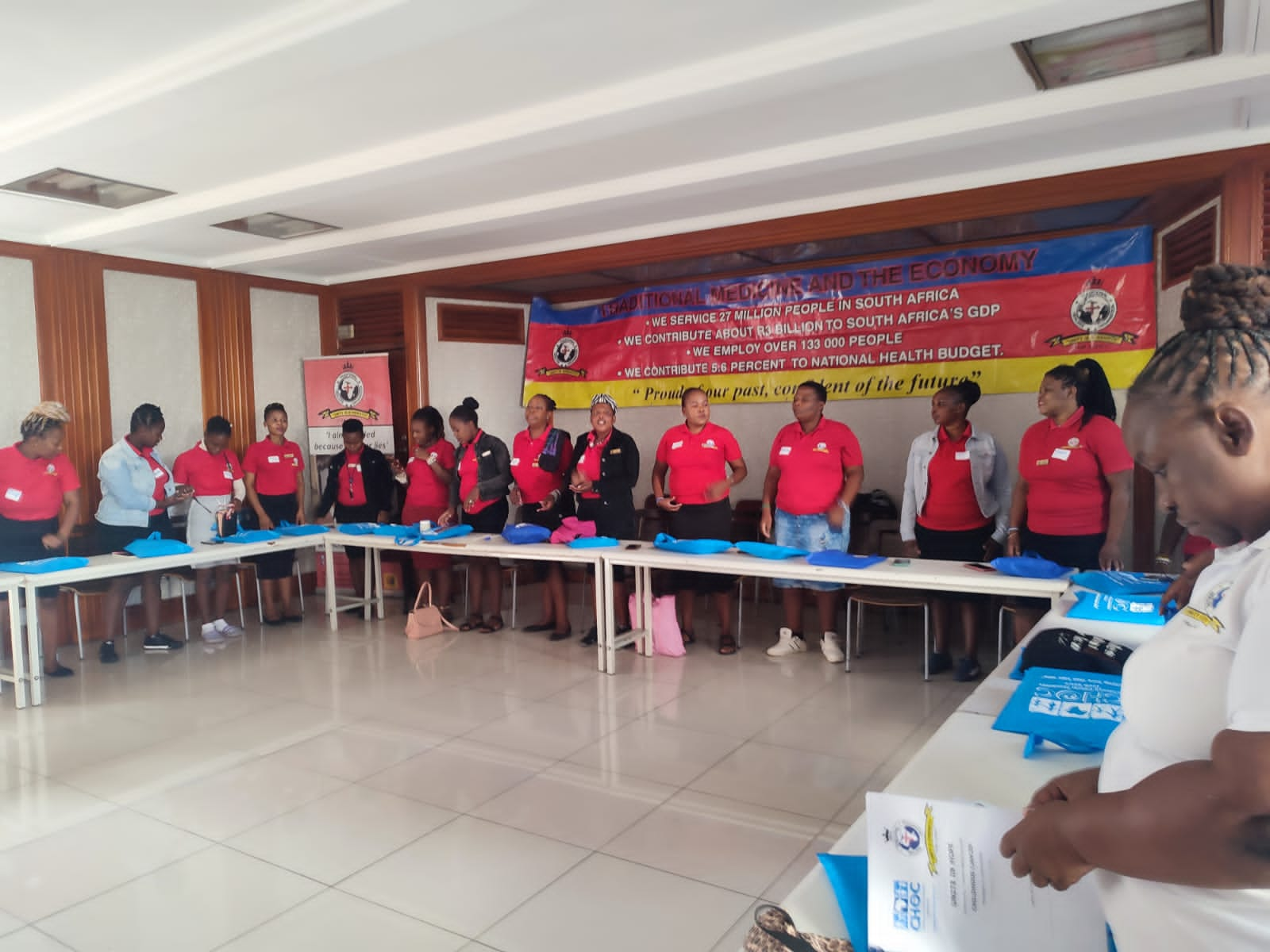The Traditional Healers Organization (THO) was established in 1970 as a not-for-profit self-regulatory ‘professional’ organization for Traditional Health Practitioners (THPs) in South Africa and Eswatini.
The Organization’s mission is “to organize, register, protect, and promote traditional healthcare through continuous advocacy for the practicing right of THPs”; and to promote the “human and health rights of persons wanting to access traditional forms of healthcare”.
The THO has extensive reach and influence. An estimated 70% of South Africans consult THPs. Furthermore, the THO has approximately 55,000 members, all of whom are THPs who have completed a compulsory five-day Traditional Primary Healthcare Training Program offered by the THO. Training content includes basic hygiene and sanitation practices, nature conservation, family planning, and relevant medical information on various prevalent diseases including diarrheal diseases, HIV/AIDS and other sexually transmitted diseases, tuberculosis, malaria, and Covid-19.
The THO is, therefore, in a unique position to influence the societal norms and behaviours that underpin gender-based violence (GBV). To capitalize on this position, the THO successfully applied for a rapid response grant from Global Affairs Canada’s Women’s Voice and Leadership Program.
The ZAR 100,000 grant (approximately USD5,500) was used to implement a pilot project that sought to raise awareness of GBV among THPs; and to train THPs on “human rights, sexual and reproductive health rights, gender development, sexual offences, related criminal procedures, and on providing basic counselling services” to victims of GBV and related forms of violence and abuse.

Over the period from March to November 2022, the THO trained 1100 THPs at nine workshops in two provinces (Limpopo and Mpumalanga). They also recruited 254 THPs to become ‘GBV ambassadors’.
The THO staff members who were interviewed for the project evaluation consider the project pilot a success, and advocate for a national roll-out. Staff members highlighted the following key successes:
- The THO was able to build positive relationships with relevant external stakeholders such as the Departments of Health and Social Development, community-based organizations, representatives of the LGBTQIA+ community, as well as the South African Police Service.
- GBV-related training now forms a permanent component of the 5-day training that is compulsory for all THO members.
- THPs are approaching the THO for advice on responding to GBV cases, and indications are that victims are increasingly supported.
Responses from four traditional health practitioners who attended the GBV training sessions suggest that the sessions were effective in creating awareness of the importance of cooperating with the medical fraternity and the police; the prevalence of GBV; the need to report violence and criminality; the need to treat patients with respect; and the role THPs could play in supporting victims of GBV. The workshops also brought to light that THPs themselves sometimes engage in patriarchal or harmful attitudes and practices towards women, children, their clients, and their initiates.
One of the respondents reported changes in the way he lives his life, while two others reported changes in the way they work (or will work). This could be considered evidence of early impact.
Workshop participants and THO staff members recognized the value of the GBV workshops and argued that more are required. However, responses also suggest that the current approach is too superficial to adequately address the need for credible information.

